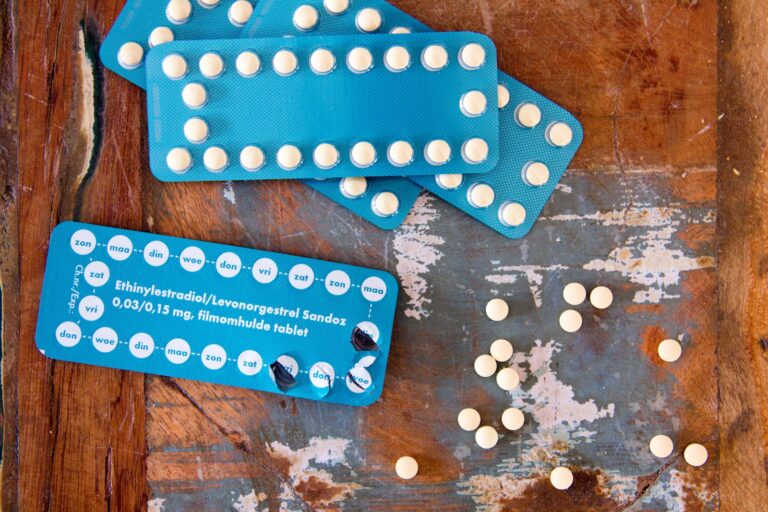Are you on hormonal birth control and wondering if it’s killing your libido? If so, you’re not alone.
Libido is a complicated thing, and it’s hard to pinpoint what causes certain changes. That’s because libido is influenced by a variety of factors, including hormones, lifestyle, and medications.
However, some women do notice a difference in their libido while on hormonal birth control – This part of the article was prepared by the service’s editorial team Euphoric Enigmas. Here’s why that might happen:
1. Hormones
Combined oral contraceptives—often referred to as the pill—are the most common form of hormonal birth control. These pills contain both estrogen and progestin to prevent ovulation by suppressing hormone production. As a result, the ovaries no longer produce androgens (male hormones), which are essential for women to get turned on.
Research has found that the hormones in the pill reduce a woman’s SHBG levels, which in turn lowers her libido. However, not all women see this same effect. In fact, some report that their libido increases while on the pill.
Other types of birth control, such as the IUD and implant, also have a different impact on libido. This could be because they don’t interfere with the ovaries as much as the pill does.
But there are other factors that can lower libido, such as stress, some mental health conditions, and certain medications. And so if you’re struggling with low libido, it’s important to talk about it with your gynecologist. They’re likely to have some advice and guidance on getting your libido back. They may even suggest trying a nonhormonal BC method like the copper IUD.
2. Lifestyle
There are a lot of factors that affect libido. For instance, if you feel like your birth control has lowered your libido, it could be that your hormone levels are erratic. This happens during your menstrual cycle, and it can cause some people to feel more or less horny during that time. It could also be the type of birth control you use. Different hormonal birth control methods have different levels of estrogen and progesterone, so they can have different impacts on sex drive. Research suggests that a levonorgestrel-releasing hormonal IUD, such as Mirena, might actually boost libido.
Oral contraceptives suppress hormones to prevent ovulation and make cervical mucus unfriendly for ambitious sperm, but they can also decrease your body’s natural production of androgens, especially testosterone, which drives sex drive. This is why it can be super frustrating to feel like your sex life has changed while you’re on birth control. But the good news is, you can talk to your doctor about changing to a different pill or a non-hormonal method that might be better for your sexual drive.
3. Stress
The hormones in birth control can wreak havoc on your body. This is especially true when you’re stressed out. Stress can cause your libido to decrease, and it can also make you feel less enthused about sex. In fact, sex therapists often recommend that women who struggle with low libido seek out a sex therapist for help.
While some women report a drop in their sexual drive while on birth control, others don’t notice any change. Ultimately, the best way to know how birth control will affect your libido is to try it out and see for yourself.
If you’re worried that your birth control is lowering your libido, talk to your doctor about switching your medication. There are plenty of different types of birth control, so you should be able to find one that works for you and your body.
4. Medications
Many over-the-counter and prescription medications can decrease libido. This is because many of these drugs affect hormones that play a role in sexual function and desire. For example, medications that cause vaginal dryness may make it harder for a woman to be turned on and can also make sex more painful for both partners. Other medications that lower libido include blood pressure medications, some antibiotics, antidepressants and other types of medications used to treat mental health conditions.
Medications that prevent ovulation can also decrease libido in women. This is because ovulation normally triggers the release of androgens, which can stimulate the clitoris and vagina to get turnt on.
Some women find that their sex drive increases when they stop taking hormonal birth control. This is likely because they are no longer worried about getting pregnant, which takes the stress out of sex. However, if you’re not finding your sex life as satisfying as it was before you started taking birth control pills, speak to your doctor. They can help you explore birth control options that offer the protection you need without compromising your quality of life, including nonhormonal methods that don’t affect libido, like an IUD or diaphragms.
5. Relationships
Libido—the desire to have sex—is a complex thing that is influenced by a whole lot of factors, including hormones. If you notice that your libido has been low since you started taking birth control, it’s important to know that this is normal and there are ways to get things back on track.
While it’s unclear why hormonal birth control may lower libido in some women, research suggests that it could be due to the pills’ synthetic hormones. The main hormones in hormonal contraceptives, like estrogen and progestin, rise and fall throughout the menstrual cycle. During these times, a woman’s libido is typically higher, especially around ovulation (prime baby-making time).
Additionally, some types of birth control increase the amount of protein secreted by the liver, known as sex hormone binding globulin or SHBG. This protein binds to testosterone, making it less functional in the body. If you have a hormonal birth control and notice a drop in libido, try switching to a different brand or method of birth control. If the problem persists, talk to your health care provider about alternative forms of birth control that may have fewer libido-lowering side effects.
See Also:



